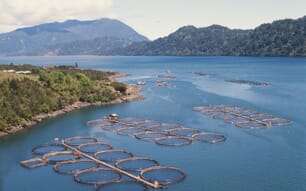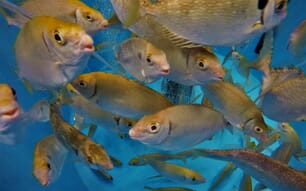Life-cycle assessments that analyse the environmental impacts of fishing may include impacts on fish stocks or pollution caused by discarded plastic fishing gear. However, they often do not include the impact of wastewater that is emptied into the sea as part of routine fishing activities.
Broadly, there are two sources of this wastewater. The first is water that has been used to store fish aboard the fishing vessel, which may contain fish waste from gutting and bleeding, as well as materials and coatings from the hold itself and any on-board refrigeration systems.
The second source is water that has been used to clean the holding tanks, which may contain detergents and disinfectants.
The researchers tested wastewater from 26 different fishing boats as they arrived to offload their catches at docks across the US. They sampled both types of water — hold and cleaning water. They tested for pollutants including metals, organic pollutants and nutrients such as ammonia.
To put their concentrations into context, they set benchmarks based on levels established in the US that are known to be toxic to aquatic life or harmful to humans. These benchmarks were set at the lowest (most protective) levels.
Out of 48 substances found in hold water, 19 exceeded the benchmarks. Fifteen out of 35 exceeded the benchmarks in cleaning water.
The researchers say that the high concentrations of metals were unexpected, although some were already present at similar concentrations in seawater. Perhaps most concerning of the metals were arsenic and dissolved copper, which the researchers think may have come from refrigerated seawater, ice added for cooling or the sea organisms themselves.
On average, hold water samples contained arsenic and dissolved copper at levels above the benchmarks. Of the 62 per cent of hold water samples in which arsenic was detected, all contained levels well above the 0.018 micrograms per litre (µg/L) benchmark and some up to 20 000 times this level.
Not all hold water samples containing dissolved copper exceeded the benchmark of 3.1 µg/L, but four samples contained levels that were at least ten times higher. Dissolved metals tend to be more toxic than undissolved metals because they are taken up more easily by organisms.
However, undissolved metals in wastewater can also dissolve at a later stage. Levels of organic contaminants were close to those found in raw sewage. This is likely due to decaying fish parts in the wastewater. Levels of ammonia, nitrogen and phosphorus were also similar to those in raw sewage.
The researchers also detected various nonylphenols in cleaning water, which are chemicals found in detergents. However, there were no benchmarks set for these substances. Compared with other sources of marine pollution, the impact of hold and cleaning water might be smaller in open water, but could be more serious in areas where fishing traffic is high and water circulation is low — as in harbours, for instance.
The researchers suggest that further research could focus on fishing wastewater’s overall impact on harbours. They also say that fishing wastewater could be included as an additional category in life-cycle assessments of seafood production.




